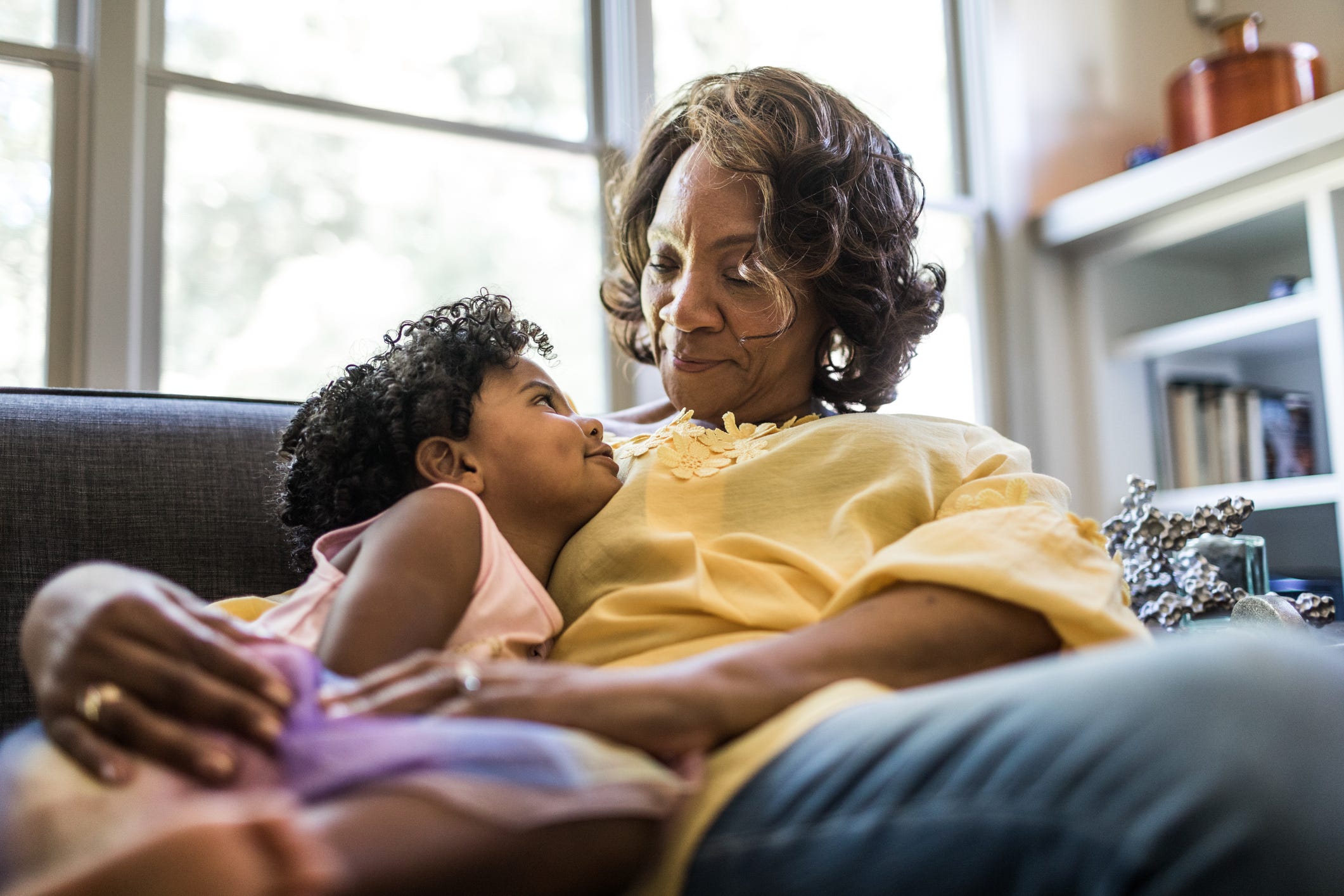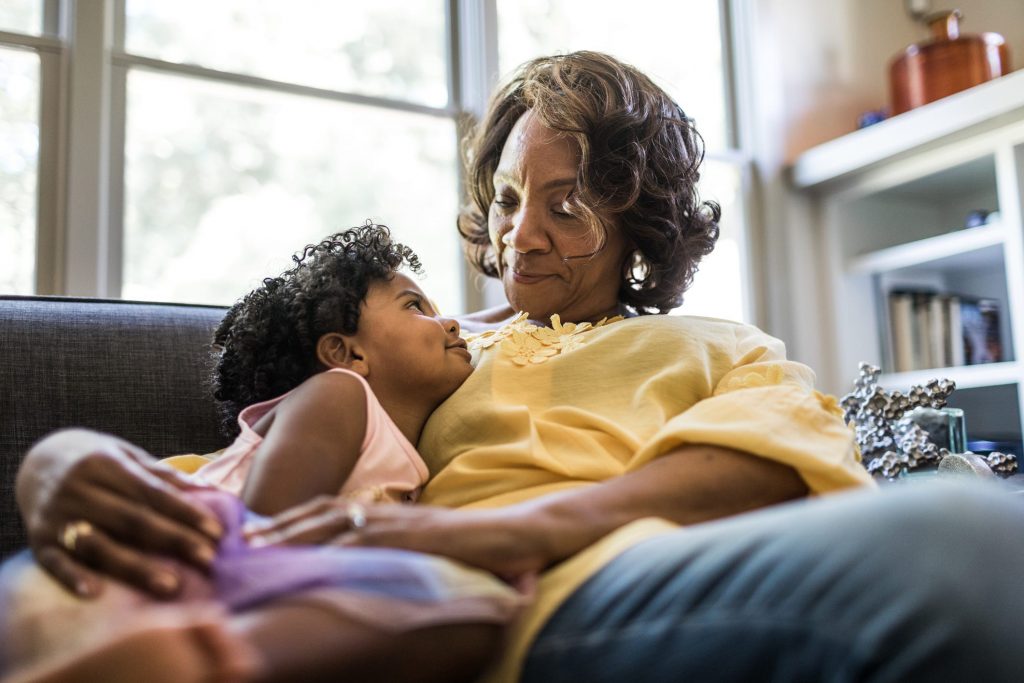
- Grandmothers' brains lit up at the emotional empathy center when they saw pictures of their grandkids in an imaging study.
- They react with less emotional activation when viewing photos of their own children as adults.
- Scientists have hypothesized that having a grandma close by is beneficial for everyone involved.
The connection between grandmother and grandkids is a special one.
It turns out this bond is visible in the brain, according to a small study of neural snapshots captured by a team of Emory University researchers and published in the Proceedings of the Royal Society B.
The team gathered 50 grandmas who each had at least one biological grandchild between the ages of three and 12. They used MRI to measure the grannies' brain function as they viewed photos of their grandchildren, compared with pictures of their grown-up children and unknown kids and adults.
The "cute factor" of young kids likely played a role in the results, which reflected a stronger emotional response to the grandchildren, lead author James Rilling said in a press release.
"What really jumps out in the data is the activation in areas of the brain associated with emotional empathy," Rilling said. "That suggests that grandmothers are geared toward feeling what their grandchildren are feeling when they interact with them."
While the grandmas showed some cognitive empathy — trying to understand what someone is thinking and why — when viewing images of their adult children, they didn't exhibit the same level of emotional activation.
"If their grandchild is smiling, they're feeling the child's joy. And if their grandchild is crying, they're feeling the child's pain and distress," Rilllings explained.
The 'grandmother hypothesis' may explain why women live longer than men
Before this kind of brain imaging was possible, researchers theorized that one of the reasons that women tend to live long past their reproductive peak is to fill the role of grandma. The so-called "grandmother hypothesis" has been around since the 1960s, with several studies looking at how the role has evolved historically.
In 17th century settlements in Quebec, for instance, women who lived close to their moms were able to have more children starting at a younger age, with a lower risk of child mortality.
Although older women today have opportunities beyond childcare, science shows the relationship between grandmothers and grandkids can be mutually beneficial.
After all, women tend to live longer than men, and they're the ones filling most caregiving roles across the globe. Older women who eat most meals alone have been found to have a greater risk of heart disease compared to those who eat with others, underscoring the relationship between social connection and physical health.
For kids, the presence of engaged grandparents can improve educational outcomes and boost emotional wellbeing. These studies have looked at the relationship between grandparents and grandkids more generally, so the role of grandpas and grandies can't be underestimated either.

